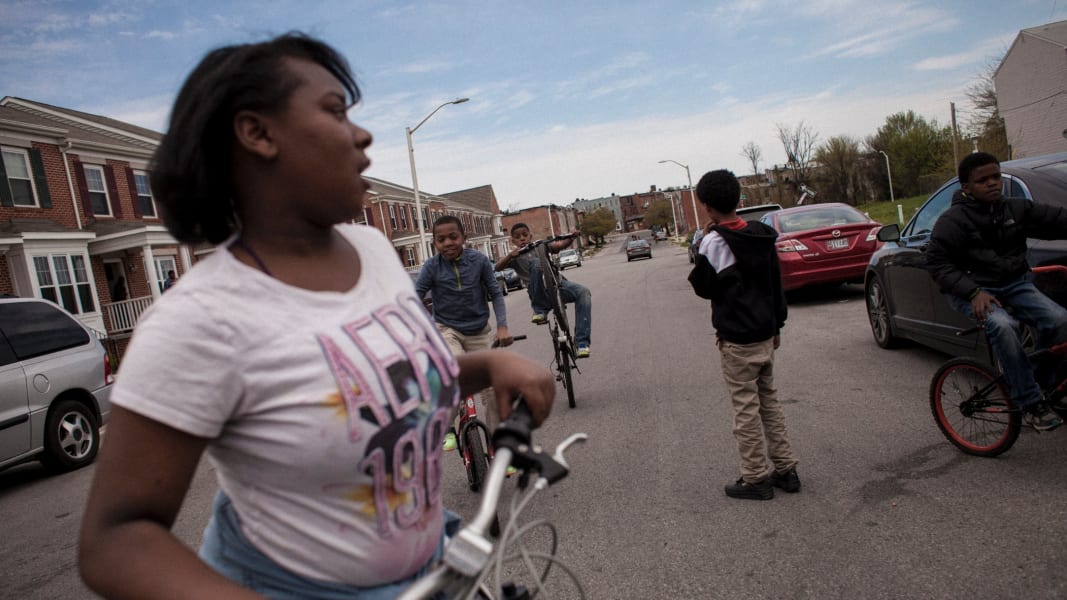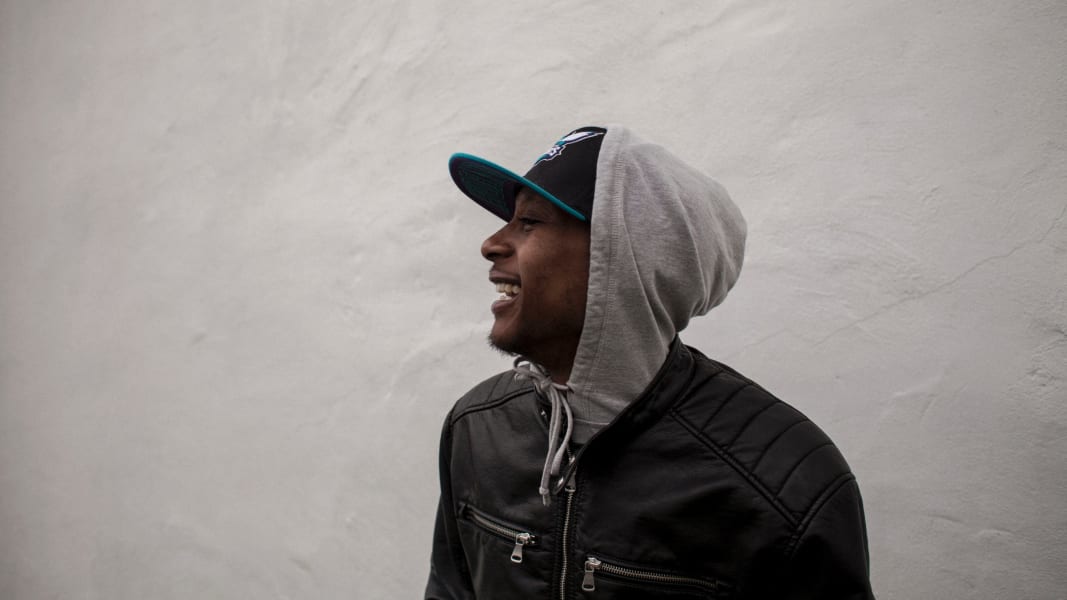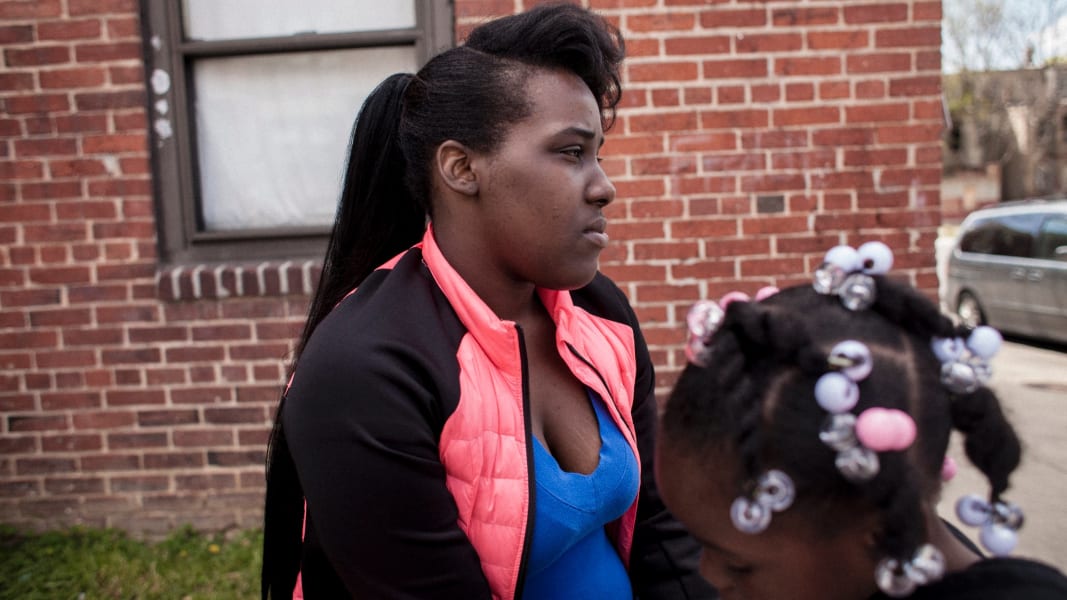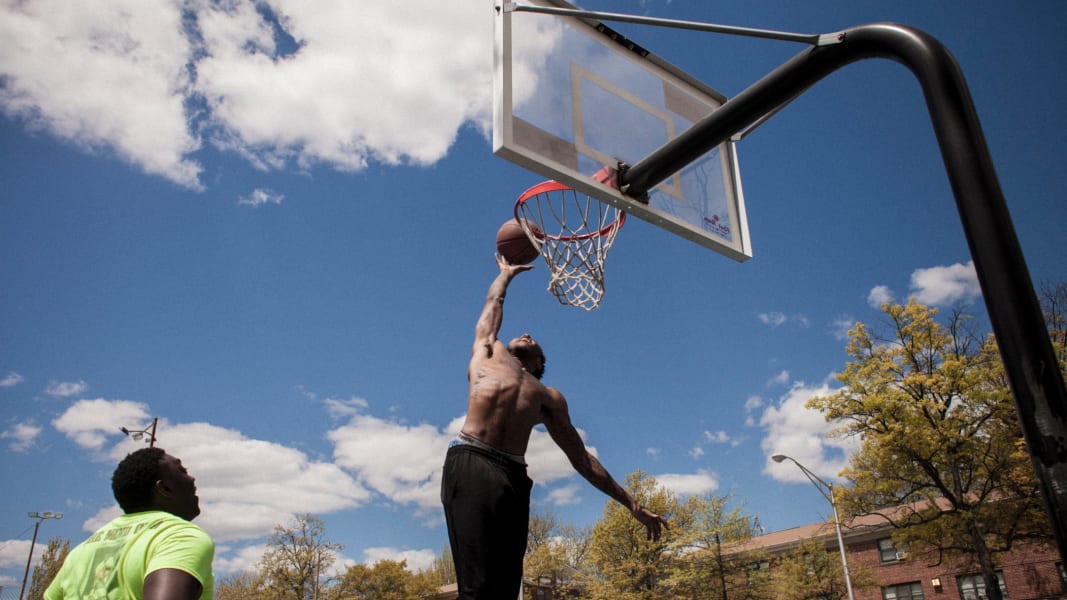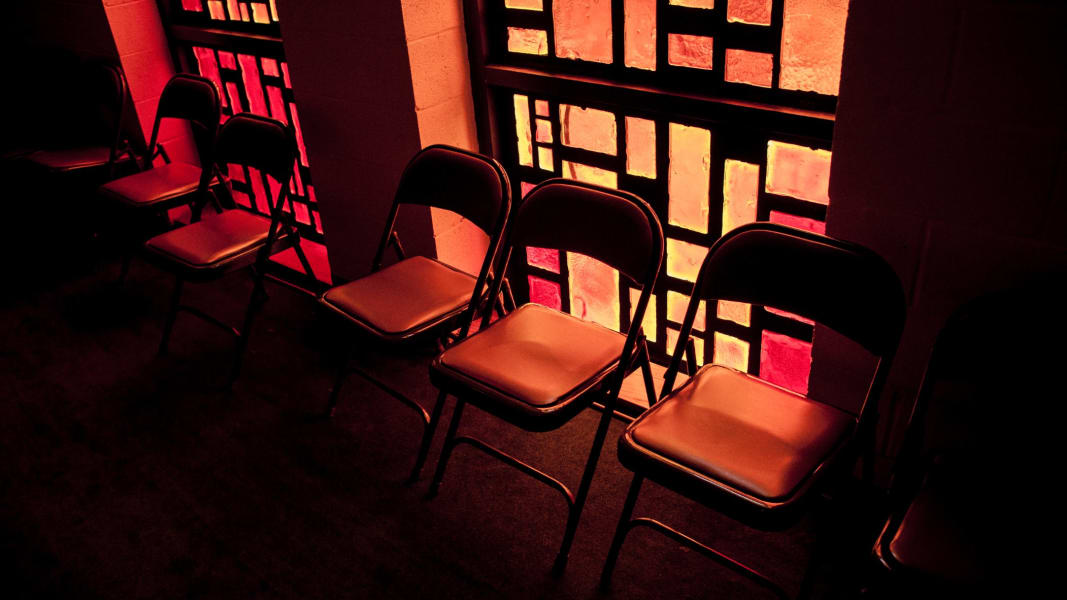Share
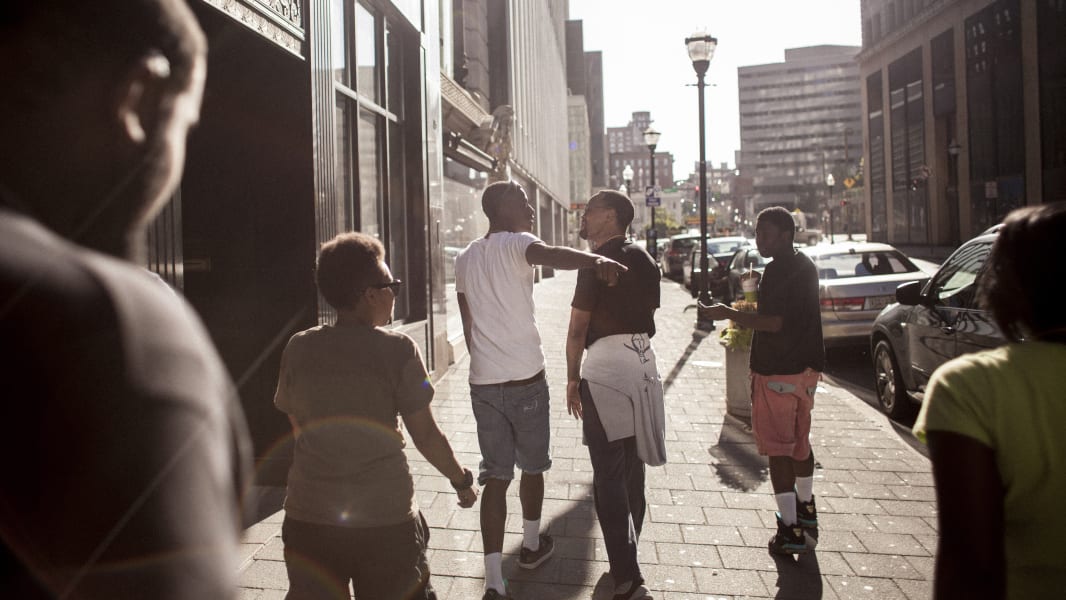

1 of 10
Many have come to know Baltimore through one name -- Freddie Gray, the 25-year-old who died in police custody. But few outsiders know the place he called home. Photographer William Sands recently spent time in the West Baltimore neighborhood where Gray lived and died. "I've been looking for images that both contextualize the rage and violence" that erupted after Gray's death "and celebrate the agency of this community," he said, "even in the face of all the odds." Here, a group of friends argue about the tactics used by protesters after Gray's death. William Sands/Fractures Collective
Kiona Mack sits on the ledge where Gray was arrested in the Gilmor Homes public housing projects. Mack recorded the first video of Gray's arrest to go viral. You can hear her in the video yelling "his leg is broken." Since her friend's death she has taken on a leadership role in the community, organizing vigils and protests. William Sands/Fractures Collective
Two men play basketball in William Mcabee Park. William Sands/Fractures Collective
Women dance in front of their cars during the recording of a music video in memory of Freddie Gray. William Sands/Fractures Collective
A man holds his daughter in the parking lot of Gilmor Homes. William Sands/Fractures Collective
Gray's brother-in-law, Juan Grant, right, has become active in the community, speaking out against police brutality and racial profiling. He is also working toward a real estate license in hopes of being able to help rejuvenate the abandoned row houses that surround Gilmor Homes. William Sands/Fractures Collective
Empty seats are seen in the New Shiloh Baptist Church, where Gray's funeral was held. William Sands/Fractures Collective
Children play in the streets of West Baltimore. William Sands/Fractures Collective
Dahzel, a friend of Gray's who didn't want to share his last name, says that there's no work in West Baltimore and without a car there is no way to get work outside the neighborhood. He laughs about not being able to get a job even if he did have a car: His criminal record means an almost certain denial to any job application. William Sands/Fractures Collective
A boy reads a book he picked out during a giveaway organized by members of Out for Justice, a nonprofit advocacy group run by ex-prisoners. The group organizes clothing drives for the poor and a weekly barbecue for the homeless. They are also active in local politics. William Sands/Fractures Collective
